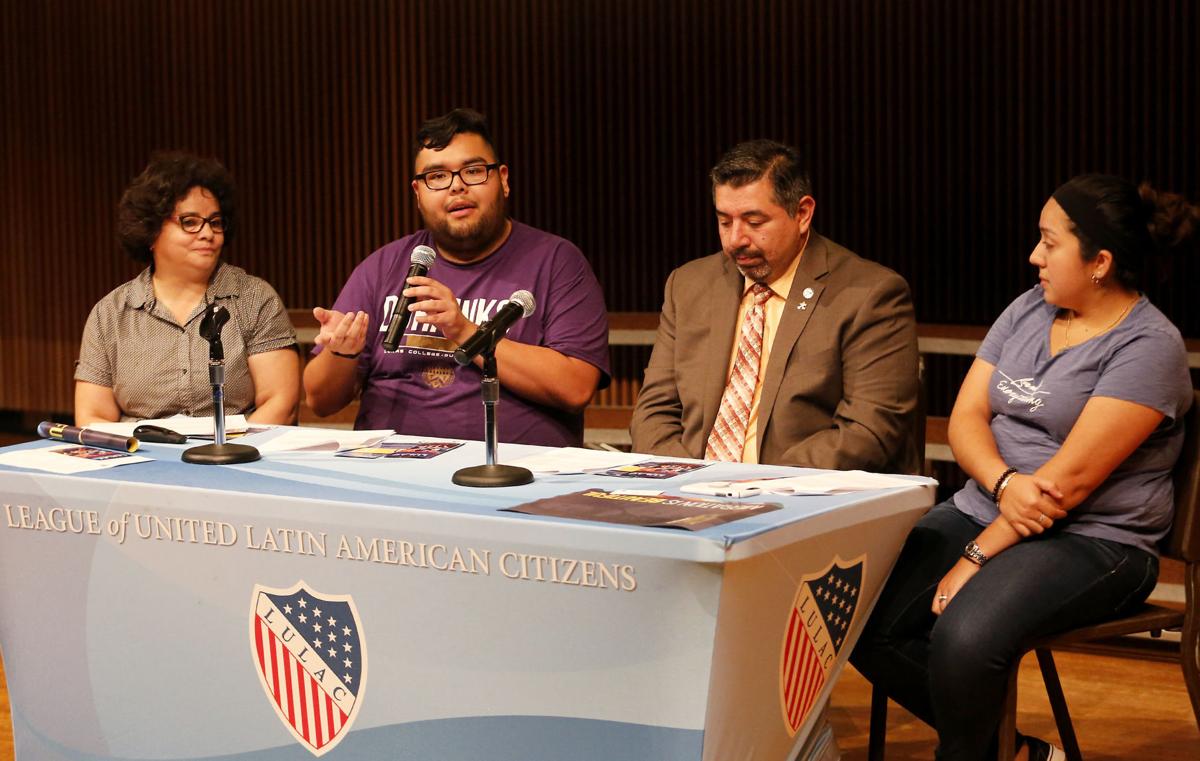Legal Assistance

The legal requirements for staying, living, and working in the community are among the persistent challenges immigrant families face. This is true for recent immigrants pursuing Special Immigrant Juvenile Status or an asylum case, college graduates looking to work at local businesses, COFA migrants trying to demonstrate their ability to travel and work in the U.S., and long-term residents working to receive their U.S. citizenship.
Meeting these requirements can be confusing, expensive, and time consuming. A 2013 analysis by the American Action Forum found that U.S. government agencies have generated over 234 different government forms related to immigration, leading to an estimated 98.8 million paperwork burden hours each year at a cost of approximately $30 billion in costs to immigrants and businesses.[1] Immigration court cases have also faced an immense backlog, with one of the region’s closest immigration courts in Omaha, Nebraska, where the average court case takes 1,265 days, or over three and a half years, to be completed.[2]
Correctly navigating these forms and legal requirements can have major implications for immigrants, determining whether they can work, receive benefits, become citizens, or even stay in the country. Having access to help and support with these requirements can be a major benefit. In 2022, individuals applying for asylum were more than twice as likely (50% vs. 22%) to have relief granted if they were represented by an attorney.[3] A 2019 study from the Immigration Policy Lab at Stanford University found that when the fee waiver process for applying for citizenship was simplified, it led to approximately 73,000 people per year becoming citizens who otherwise would not have applied.[4]
Locally, nonprofits and volunteers have been incredibly valuable in helping immigrant community members fill out forms and apply for everything from a new passport to U.S. citizenship. Local colleges and universities also dedicate a significant amount of time and resources to helping students navigate the immigration system so they can study in Dubuque. These efforts are enormously important given the complexity and challenge associated with immigration statutes and requirements.
Recommendations
While many of the changes and reforms that would help simplify the legal system must be enacted on the national level and are therefore largely outside of the scope of this guide, there are other measures that can be undertaken on a local level. To see possible recommendations for local stakeholders, click here:
Continue Reading
Use the following links to learn more about different issues facing immigrant communities:
- For Case Management, click here
- For Education and Youth Support, click here
- For Health, click here
- For Housing, click here
- For Translation and Interpretation, click here
- For Workforce and Employment, click here
To return to the Immigration Community Assessment welcome page, click here.
